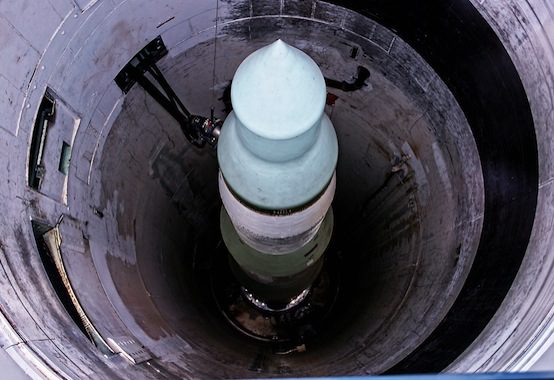Ukraine and Nonproliferation

The Wall Street Journal makes a dubious claim:
The damage to world order from Vladimir Putin’s invasion of Crimea will echo for years, but one of the biggest casualties deserves more attention: the cause of nuclear nonproliferation. One lesson to the world of Russia’s cost-free carve-up of Ukraine is that nations that abandon their nuclear arsenals do so at their own peril.
This has become a surprisingly common argument over the last few weeks, but for reasons that Noah Millman already gave earlier this month it isn’t very persuasive. The argument suffers from several major flaws. First, Russia would have taken a much greater interest in the internal politics of a nuclear-armed Ukraine than in the politics of one that did not possess nuclear weapons. As Millman pointed out, Russia would have been more likely to intervene in Ukraine militarily and to do so much sooner if Ukraine still had a nuclear arsenal:
How would nuclear weapons avail Ukraine in the current crisis? What seems most likely to me is that, if Ukraine had an independent nuclear deterrent, Putin would have intervened much earlier to make sure that Yanukovich remained in power. He certainly wouldn’t risk a Ukrainian nuclear deterrent falling into the hands of an anti-Russian party.
Presumably, Russia would have been even more adamantly opposed to letting a nuclear-armed Ukraine move out of its orbit. Do we imagine that the current Russian leadership would be acting with more restraint if a government that included members of Svoboda had control of nuclear weapons? It’s not very likely. Besides, Moscow could very well have used the security of its nuclear weapons as the formal excuse for an intervention in the event of political unrest. Other governments might not believe the excuse, but it would be more difficult for them to condemn an intervention that was justified in this way. The one salutary effect that a nuclear-armed Ukraine might have had is that there probably would have been less eagerness on the part of outside governments to encourage serious political instability in a country with a large number of nuclear weapons, but that is not at all certain.
If the “assurances” in the Budapest Memorandum have been revealed as meaningless, they were very weak commitments on the part of the U.S. and U.K. in the first place. John Haines recently reviewed the language of the agreement, and made this observation:
The qualifying clause in paragraph 4 of the Budapest Memorandum— “in which nuclear weapons are used” — is precisely the sort of language Mearsheimer admonishes as rendering any associated “security guarantees” meaningless. Given that Russia has neither used nuclear weapons nor so far threatened to do so, there is no referral to the United National Security Council[2], at least not under the Budapest Memorandum. All that document does is provide (see paragraph 6) for the signatories to “consult in the event a situation arises that raises a question concerning these commitments.” If that constitutes a “security guarantee,” it is a singularly flaccid one.
Haines goes on to say that “the case for arguing that the Budapest Memorandum contemplated a security guarantee that might apply in the current circumstance is, at best, a weak one.” Since the case is so weak, it is no wonder then that the WSJ has embraced it so fully.
Comments